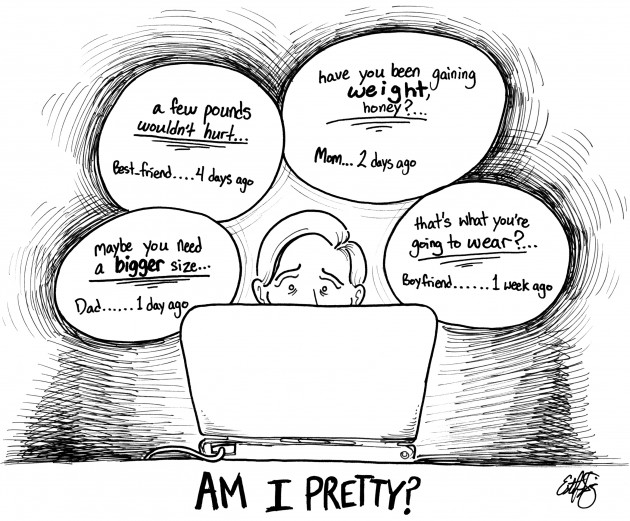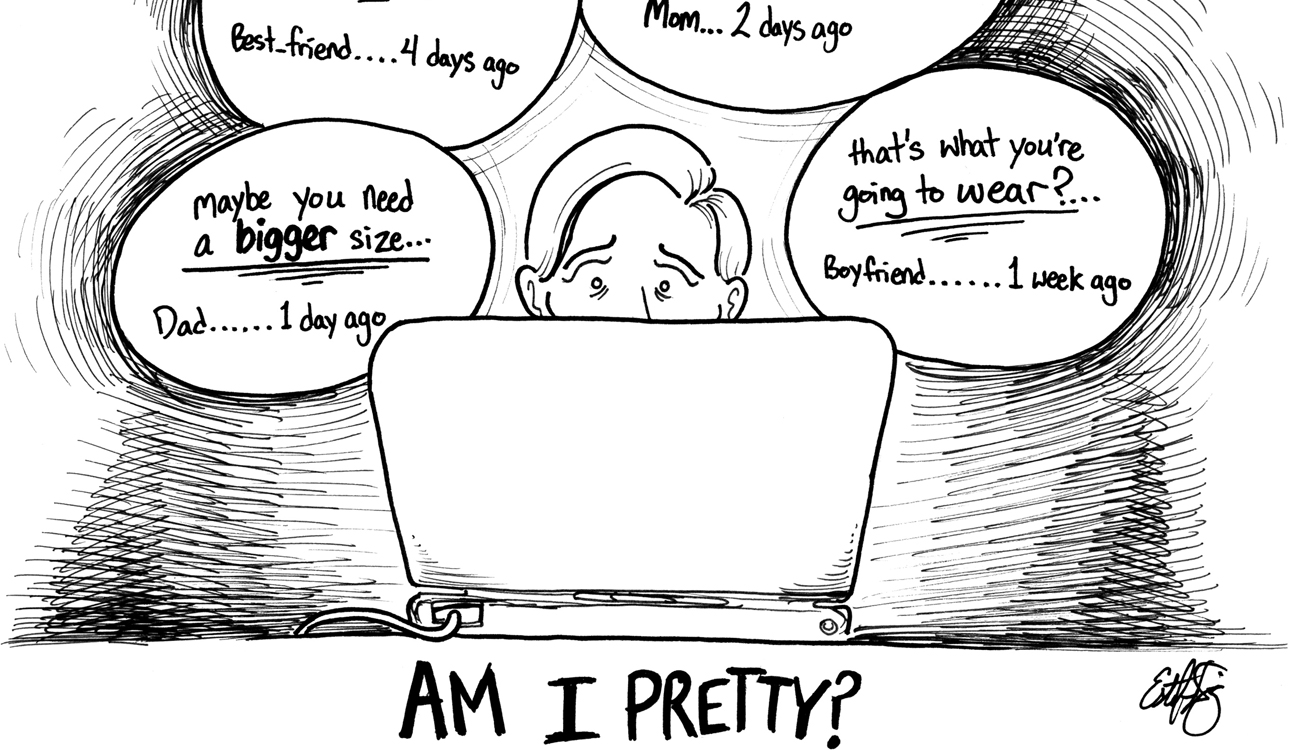
YouTube’s wonders know no limits. The site allows you to share memories, view music videos, watch speeches and ask the world if you are ugly.
You may think it would be ridiculous to ask the denizens of the Internet to rate your attractiveness, but many teenage girls have taken to YouTube to ask just that.
In a disturbing trend, videos have appeared on YouTube in which young people, almost exclusively girls, asking if the viewers think they are “pretty or ugly.”
These videos reflect a huge problem. To ask the people of the Internet to evaluate you automatically subjects you to harsh criticism by people shrouded in anonymity. Trolls flood the Internet with the sole purpose of aggravating users; their cruelty could do significant damage to a girl’s self-esteem. Anonymous users have no problem saying things like “You fell out of the UGLY tree and hit every branch on the way down,” as one YouTube commenter said knowing he or she will never personally see the person in the video uploaded last November.
We know there are adults who visit similar “hot or not” websites, but these people are grown and have already formed their own perceptions of beauty. The people in this recent crop of videos are too young to concern themselves with shallow judgment from strangers.
It is concerning these people feel the need to seek affirmation from strangers – their worth should not come from the meaningless opinions of others. That girls post these videos reflects on our societal values.
Increasing social pressure to be beautiful has driven young girls to wear makeup at an earlier age, dress in racy clothes and act beyond their age. Girls now fear getting fat as early as elementary school. Negative body images are at a high.
As a society, we need to reflect on the message we send young people at home, at school and through the media. What values are we promoting? If attractiveness is at the top of the list, we should be concerned.
A person’s worth does not come from his or her appearance. Personality, actions and intelligence are far more important features to praise. What good is being beautiful if that is your only admirable quality?
Often, the media is blamed for increasing pressure on girls and women to act and look a certain way. People blame magazines for promoting diets and portraying skinny as the only acceptable body shape, but we cannot keep using the media as a scapegoat.
The amount of time somebody spends reading a magazine is significantly lower than the time he or she spends talking to family and friends. If we are promoting the same values as these magazines and TV shows at home and at school, we are doing more damage than the media.
It is vital that parents instill positive messages of beauty in their children from an early age. The media will bombard them with images of models and society’s view of what they should be, but parents and teacher can combat the effects of the media.
Parents should focus on telling their children their value is based on what they do and think. Young girls should be told they are beautiful as they are and that they are intelligent. Sure, it is OK to want your child to look nice and be put together, but looks should not be among the most stressed characteristics.
If the message young people receive about beauty is not reformed, we could see even more teens go to the Internet for affirmation, which would most likely lead to more distorted values and self-images. That is ugly indeed.






